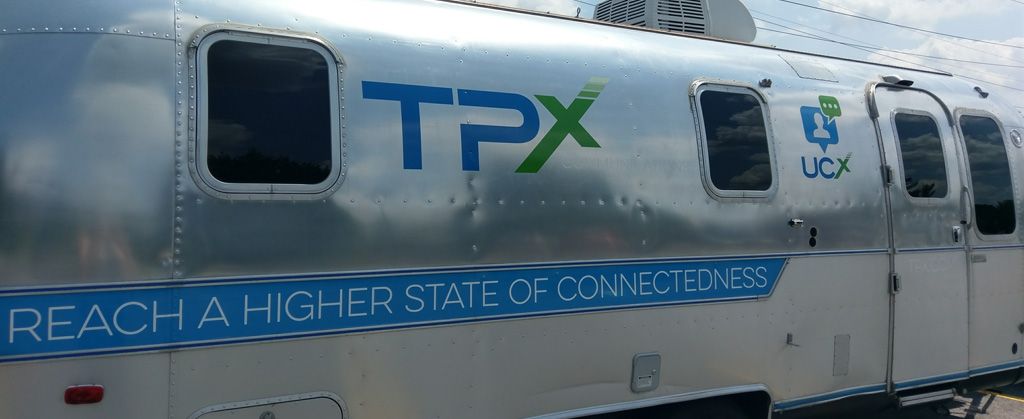
TPx Communications Financial Downfall: A Comprehensive Look into Moody's Rating Downgrade
Unraveling the Complexities Behind TPx Communications' Financial Struggles: An In-Depth Examination of Business Operations and Market Implications
U.S. Telepacific Corp., better known as TPx, has faced two significant credit rating downgrades within a short span of time, as per the renowned credit ratings agency, Moody's Investors Service. TPx is a national managed service provider and Competitive Local Exchange Carrier (CLEC) that predominantly serves small and medium-sized businesses across various regions, including California, Nevada, Texas, and New England. It delivers higher bandwidth access connections using a mix of technologies such as ethernet over copper, fixed wireless, and metro fiber.
In March 2022, Moody's took the step of downgrading TPx's corporate family rating (CFR) from B3 to Caa1, marking a considerable shift in the creditworthiness of the company. This downgrade was not an isolated action, but rather a reflection of the amendments TPx had made to its credit facility agreement. In an attempt to manage its financial position, the company opted to extend the maturity on its revolver and bank loans by three years, moving the maturity dates to 2025 and 2026, respectively.
These strategic maneuvers, however, were not seen as a sign of strength. Moody's treated this adjustment to TPx's credit facilities agreement as a distressed exchange, equivalent to a default under its definition. With this amendment, the company also made provisions for interest payment on the term loan to be paid in kind (PIK) for two years, giving TPx the discretion to opt for this mode of repayment. The default designation was accompanied by a negative outlook, reflecting the high leverage that TPx was expected to grapple with for the forthcoming 12-18 months, as well as the company's weak liquidity profile.
In terms of the specific metrics, TPx's leverage was projected to be more than 8x by the end of 2022, on an adjusted EBITDA basis. These calculations took into account the one-off costs associated with the transformational cost rationalization that TPx was undertaking at the time. The company's liquidity was anticipated to be weak due to heavy reliance on its sponsor, Siris Capital Group, LLC. The expectation was that the company would burn cash in every quarter of 2022, owing to costs associated with its shift to an asset-light model.
Moving forward to June 2023, TPx's corporate family rating was further downgraded by Moody's from Caa1 to Caa2. This downgrade followed the company's execution of a debt amendment and exchange offer, termed as the Exchange Transaction. Moody's assessed this action as another distressed exchange, leading to a downgrade of TPx's probability of default rating (PDR) to D-PD. The company's super priority senior secured first lien credit facilities, which included a revolving credit facility due November 2025 and a term loan due May 2026, saw their ratings drop to Ca from Caa1. These credit facilities ratings are slated to be withdrawn soon due to the Exchange Transaction.
Under the terms of the Exchange Transaction, TPx's equity sponsor, Siris, purchased around 50% of the company's outstanding debt at distressed prices and exchanged that debt into a second lien senior secured term loan due in November 2026. This new loan came with a mandatory pay in kind (PIK) interest feature through maturity. Furthermore, the amendment made provisions for interest payment on the new amended first lien senior secured term loan to be in cash plus PIK format in the first year, with optional PIK elections in the subsequent years through maturity in May 2026.
With these strategic financial maneuvers, TPx displayed an aggressive financial strategy, triggering a downslide in its credit ratings. The company's debt leverage, when adjusted according to Moody's metrics, was anticipated to rise considerably and stay well above 10x over the next few years. While the sponsor had injected additional equity and had committed to infusing more equity in the future, it still couldn't overshadow the company's alarming financial health. A further downgrade could occur if TPx fails to execute on its operational plans, fails to achieve EBITDA growth or doesn't reduce leverage.
Nonetheless, TPx's ratings could also be upgraded if the company succeeds in navigating its financial and operational challenges. An upgrade would require TPx to demonstrate a trend toward a debt/EBITDA ratio of less than 6x on a sustainable basis, along with growth in its customer base and an improvement in free cash flow.
Despite the extended runway that the Exchange Transaction and the sponsor support provide, Moody's is still of the opinion that TPx's liquidity position remains weak. The company's cash on hand and its cash from operations are not expected to be sufficient to cover the capital expenditure requirements, the payment of mandatory debt and interest expenses, and the funding of working capital requirements. This highlights the important role of Siris's support in ensuring the company remains compliant with the minimum liquidity covenant. Siris's $40 million equity injection and its commitment to add another $30 million in the next two quarters of 2022 seem to be essential to keeping the company afloat. However, the high dependence on Siris does raise concerns about the company's financial sustainability in the long run.
It's also worth noting that TPx is not only dealing with high financial leverage and weak liquidity, but also a substantial business transformation. The company's transition to an asset-light model is key to its long-term survival and growth, allowing TPx to compete more effectively in the increasingly digital and cloud-centric telecommunications sector. Despite the near-term costs, the transition to a managed services business model, focused on software-defined wide-area network (SD-WAN), security, and Unified Communications as a Service (UCaaS), is critical for the company to capitalize on faster-growing markets.
In conclusion, TPx's journey through 2022 and 2023 has been marked by significant financial and operational challenges, leading to a downgraded credit rating and an ongoing negative outlook from Moody's. However, with ongoing support from Siris and a comprehensive transformation strategy, there is hope that TPx can navigate its way out of this difficult period and establish a stronger financial and operational position in the telecommunications industry.
















